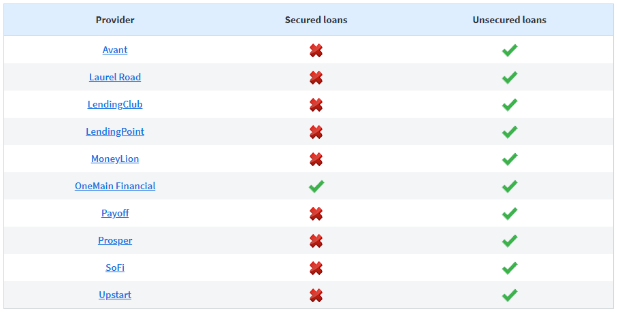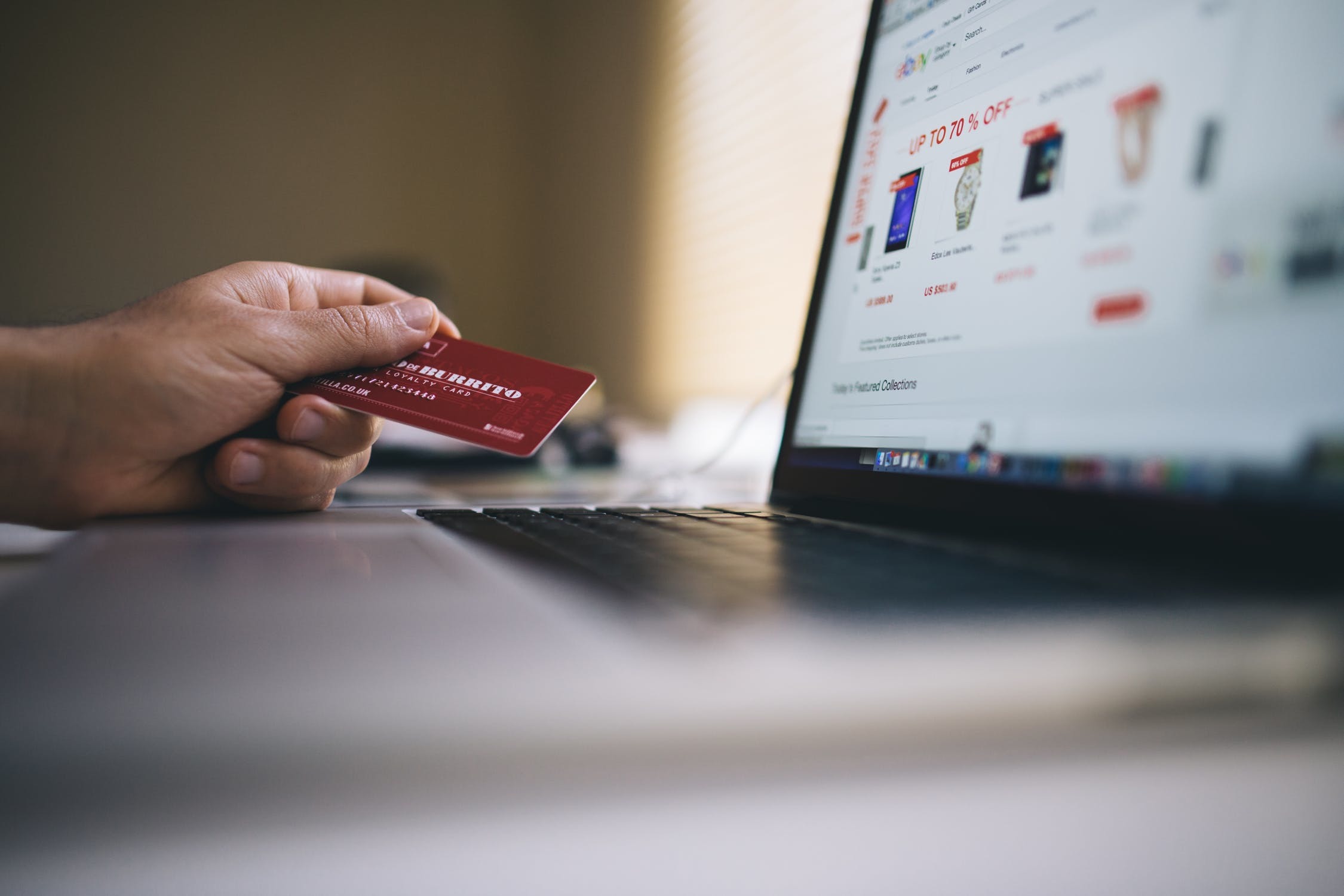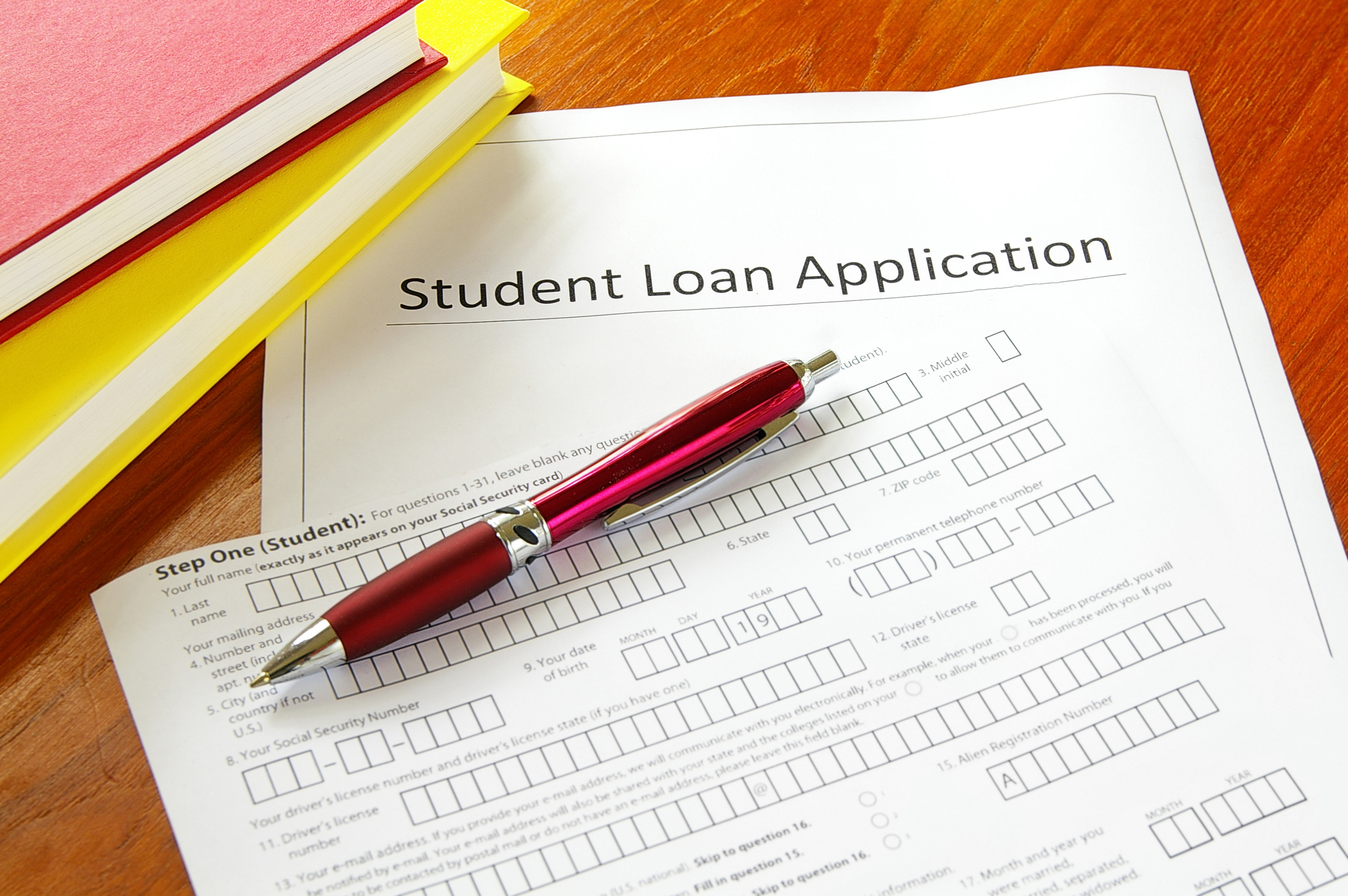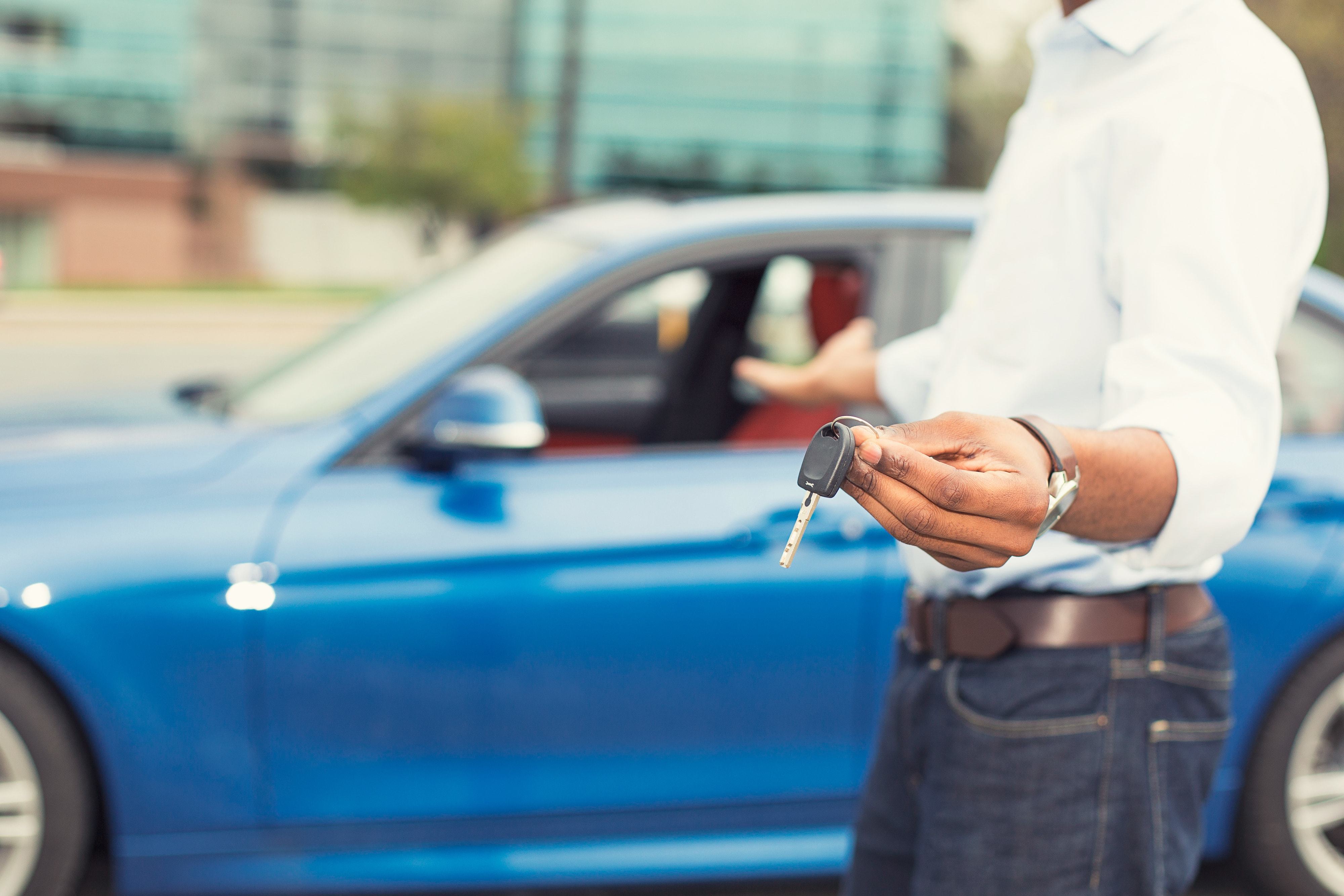In this Post:
- Secured Loans vs Unsecured Loans
- What Is Secured Debt?
- Types of Secured Loans
- Land as Collateral
- Credit-Builder Loans
- Cash-Secured Loans
- Secured Loans and Your Credit Score
- Secured Loans as a Credit-Building Tool
- Secured Loans and Credit Score Expectations
- How to Get a Secured Loan?
- Your Best Bet Is the Bank
- Get a Loan Despite Bad Credit
- Loan Defaults
- Bankruptcy
- Secured Loans to Consider
- Interest Rates
- Key Takeaways
You need some extra money so you’re ready to take out a loan. In the research process, you may have come across the terms secured loan and unsecured loan which left you scratching your head and thinking “Huh? What do these terms even mean?”
In this guide, we’ll break down secured loans vs. unsecured loans and do a deep dive into everything you need to know.
Differentiating Between Secured Loans and Unsecured Loans
When applying for a loan you may wonder “What is the meaning of secured loan and unsecured loan?” and want to know the difference. There’s a pretty important distinction between the two, so it’s good to know what they are and what you’re getting into.
A secured loan is a loan that is backed by collateral, which is something of monetary value that can be used against the amount of money you borrow. So for example, a mortgage or car loan is a type of secured loan where the house and car is an asset that can be taken away if the loan is not paid back. That’s why you may have heard of people dealing with foreclosures or car repossessions. If a loan is not paid back, the lender can go after the collateral that backed the loan.
An unsecured loan, by contrast, does not have any collateral to back the loan. Consider an unsecured credit card. If you don’t pay your bill, there’s nothing for the credit card company to take. Though lenders may have other ways to try and get their money repaid, there are no assets that back what you borrowed.
Secured Debt: Just Another Name for Secured Loans
If you see the terms secured loan or secured debt, just know that they are interchangeable. Both terms relate to having a loan, which is a type of debt, that is secured by an asset.
When lenders offer you a loan they must assess how risky you are as a borrower. After all, they want you to pay their money back, with interest. If you don’t have the credit history to show or want a better rate on a loan, getting a secured loan can help.
Having secured debt means that asset can be taken away if you end up failing to make payments. This is why it’s called secured. It’s a way for a lender to feel secure when it comes to lending you money!
The Different Types of Secured Loans
There’s not just one type of secured loan out there; there are different types of secured loans.
- For example, there is the secured credit card which is backed by a cash deposit. A secured credit card is typically for consumers who are establishing or rebuilding their credit. A cash deposit gives the lender the confidence to let you borrow money because they have the assurance that if the credit card is not paid back, they have access to cash to cover their bases.
- There’s also a mortgage, which you may not even realize is a secured loan. Your home loan is what you borrow to become a homeowner. If you start missing payments, your home loan can be delinquent. That state can trigger the collections and foreclosure process. When in foreclosure, the lender can legally get the house back, leaving you high and dry without a place to live.
- The same can be said of a car loan. When you take out a car loan, the car’s value is used against the loan. If you end up missing enough payments, your car can be repossessed in order to cover the cost of the loan.
- Some financial institutions or online lenders may offer secured personal loans. A personal loan is a loan that can be used for a variety of personal purposes. It consists of a fixed amount of funding handed down in a lump sum. These loans are generally used for one-time payments — whether that’s consolidating your debt, paying for a wedding, or an emergency home repair.
Possible Collateral for Secured Loans
A secured loan requires a type of collateral, such as a home or car, to back the loan. If you have access to land you might be curious and wonder if you can use it as collateral for a loan. The answer is, it depends on the lender. It’s possible to use land as collateral for a secured loan but it may take some digging to find the right lender for you.
Poor Credit? Try a Credit-Builder Loan
There is another type of secured loan that isn’t talked about a whole lot but can help you if you have poor credit: the credit-builder loan.
A credit-builder loan may be offered by a financial institution and can be a secured loan. A credit-builder loan is when a bank lends you a specific amount of money and puts it in a savings account.
How Does a Credit-Builder Loan Work?
When you get approved for a credit-builder loan, you will have a set loan amount and a repayment schedule. This amount will be in a savings account and then it’s your job to make monthly payments to get your money back.
It’s likely you won’t be able to access “your money” (which is from the lender) until you have repaid the credit-builder loan in full. If you miss a payment, the lender may forfeit your ability to get the money in the savings account.
A credit-builder loan can be a win-win in that it builds credit while also giving you a base of money to start a savings account. If you’re just rebuilding your finances or credit, this can be a great start.
What Is a Cash-Secured Loan?
Another lesser-known loan option is a cash-secured loan. A cash-secured loan is when you use your own savings or money as collateral for your loan.
You may be able to get a cash-secured loan from your bank. The way it works is that your financial institution puts a hold on your savings account, making it inaccessible until your loan is repaid in full.
You pay interest on this loan and your loan amount is tied to what is available in your account. This type of loan can help you build credit with the money you already have in the bank.
Some personal loan lenders don’t offer secured personal loans. However, OneMain Financial is one lender that does offer these loans.

The Impact of Secured Loans on Your Credit Score
When taking out any type of loan, you always want to be mindful of how it will affect your credit. Truthfully, taking on a secured loan doesn’t really differ from taking on an unsecured loan when it comes to your credit score. The basics remain. If you make all of your payments on time and keep your balances low, your credit score will improve.
Some consumers who opt for a secured credit card might be “credit invisible” and not have a credit score. In this case, a secured credit card can help establish a credit score within six months.
If you already have credit you probably don’t need to take out a secured loan. If you need to establish credit, a secured loan can help you do just that. Once you have a credit score on the map, you can continue to improve your credit score by making on-time payments and not using too much of your credit limit.
Credit utilization, which is really how much of your credit limit you spend each month, is a factor that determines your credit score. So while a secured loan can affect your credit score in a positive way with on-time payments and low credit utilization, the converse is true as well. If you end up missing payments or maxing out your cards, your credit score may take a plunge.
When dealing with a secured loan, play smart and make on-time payments!
Are Secured Loans a Good Way to Build Credit?
Have you looked at your credit recently and are less than impressed? In fact, you’re daunted and ashamed by it? If your credit score leaves something to be desired you might be desperate to make an improvement.
In that case, you may be curious about your options and wonder, “Should I get a secured loan to build my credit?”
Here’s the deal: A secured loan, like a secured credit card, is really only great if you have no credit. If you already have credit, but it’s not in great shape, there may be unsecured credit cards geared toward someone with poor credit.
If you’re thinking of a house or a car, it’s unlikely you would be approved for a good rate if you have bad credit. In short, a secured loan, like a secured credit card, is a good tool to build credit but only if you want to put your credit score on the map.
If you do get approved for a secured loan you may want to know, “Do secured loans hurt your credit?” Having a secured loan won’t hurt your credit. If you don’t pay back your secured loan, that is when it can hurt your credit.
A Secured Loan Can Lead to an Improved Credit Score
Deciding to get a secured loan as a credit-building tool may leave you with one important question, “How much will a secured loan improve my credit score?”
Of course, this is not an exact science and everyone’s credit profile and history are different. You can expect your credit score to go up around 100 points within the first six months. If you have no credit score, you can expect to have a credit score with the credit bureaus in that time as well.
How Can I Get a Secured Loan to Build Credit?
If you have been denied for a mortgage, car loan or even an unsecured credit card, you may have to hit pause and wonder what your options are.
Getting denied is very upsetting but it’s not the end of the world. If you get denied for unsecured loans it’s time to try and get a secured loan to build credit.
But you want to know how to get that secured loan first. You can get a secured loan through financial tools like a credit-builder loan, described up above, or a secured credit card. To get started, you can see if your financial institution offers these options.
Just remember, for a secured credit card you will need to have cash on hand for the deposit. So:
- find your secured loan option
- apply
- repay to build credit
Ask Your Bank About Secured Loans
How Does a Secured Loan Work at a Bank?
Getting a secured loan at your bank is probably the best bet to start with. They may or may not offer a secured loan but going with what you know is always a good idea. A secured loan from a bank can have different terms, different APRs, etc., depending on the lender.
Go to your bank and see if they have a type of secured loan, like a personal loan. You can review the terms and conditions and apply if it’s a good fit. The key is to pay it back on time to actually build your credit.
Here’s How to Get a Loan Even with Bad Credit
If you have bad credit getting a loan can seem impossible. But it’s not! A secured loan like a personal loan or a secured credit card could work in your favor.
The thing is you may think you’re out of luck, and wonder, “What can I use to secure a loan if I have bad credit?”
In the case of a secured credit card, you would have to put a cash deposit down. If you get a secured personal loan, you may need to put your car or your home as an asset to secure the loan.
It’s important to be aware that your options may be limited, and your APR will likely be much higher.
Defaulting on Unsecured and Secured Loans
The most important factor when it comes to building your credit — whether you have an unsecured or secured loan — is making your payments on time.
- If you have an unsecured loan and default, the lender has no recourse to get their money back right away. They may take legal action and your credit will be shot, but they have no asset to take back.
- If you default on a secured loan, it’s a different story. Because it’s secured by an asset like a cash deposit, car, or home, those things can be taken away from you as a way to repay the loan.
In some ways, you may have more to lose with a secured loan. Make your payments on time and in full so you can keep all of your other assets intact.
Secured Loans and Bankruptcy
If you’re struggling to keep up with your finances, you might consider bankruptcy to help you start fresh. It can be a bit tricky and it depends on the lender, the type of secured loan, and if you’re current on your repayments. Because a secured loan is backed by collateral, the lender has every right to use that asset if you don’t pay.
Now even if the amount you owe the bank is less than the value of your collateral, the bank still gets to
- take the collateral
- sell it
- and distribute the rest of the money to other creditors you owe money to
If you are current on your payments and want to keep your collateral, such as a house, you may be able to work with the creditor and maintain your payments. If you are current on your payments, it’s more likely that you can work something out. If you’ve defaulted on your secured loan and file for bankruptcy, your collateral may be at risk.
Recommended Secured Loans for Building Credit
After you address the “how” of getting a secured loan you want to know the “best options to consider.”
Here are our top options for best secured loans to build credit:
- Capital One® Secured Mastercard® credit card: We like this option as it has no annual fee and has varying deposit amounts. You may also be eligible for a credit line increase after proving you can make on-time payments.
- Discover it® Secured Cash Back credit card: This option is great as you can earn between 1%–2% cash back on your purchases, and there’s no annual fee. Bonus: they’ll also match your cash back that you earn in the first year!
- Self Lender credit-builder loan: You can apply for a credit-builder online, monitor your credit, and more. If your financial institution does not have a credit-builder loan option, this is a resource to consider.
Let’s Talk Interest Rates for Secured Loans
When you take on any kind of loan you want to know the interest rate as it affects the total cost of your loan. Secured loan rates can vary from lender to lender, depending on the type of loan.
For example, a secured credit card may have a high APR as you don’t have a lot of credit history to show your creditworthiness. On the other hand, if you have good credit and take on a mortgage or car loan, having those items as collateral can result in a lower APR.
Adding personal loans to the mix with various online lenders can also change things. In other words, there’s a big range! Secured loan rates can vary from around 6%–35% but it all depends on the type of loan and the lender.
Key Points to Remember
As you can see there are a variety of types of secured loans on the market. Some of them are geared toward people improving or establishing their credit while others may be a home loan or car loan, which inherently as the item behind it as collateral. In the case of a car loan or mortgage, you may be eligible for a lower APR because it is backed by a physical item.
Regardless of the type of secured loan you take out, make sure you make on-time payments, so you can keep your assets and your credit in your control.




